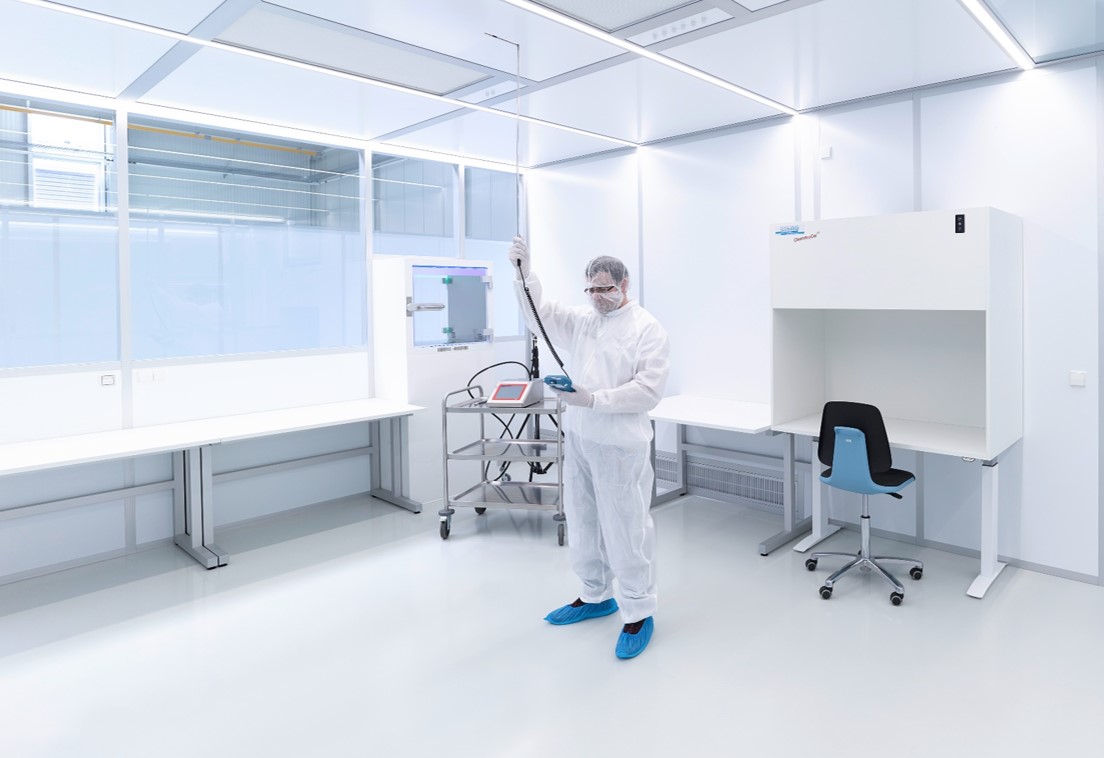GMP Quality Assurance Guidelines
Quality assurance guidelines for cleanrooms are essential to ensure a controlled environment with minimal airborne particles. In the pharmaceutical industry and drug manufacturing, even the smallest impurities can affect product quality and cause significant hazards. GMP guidelines are the essential standard for working in a cleanroom.
What does GMP mean?
GMP stands for Good Manufacturing Practice.
GMP refers to quality assurance guidelines that ensure consistent quality standards in the manufacture and testing of drugs or active ingredients. But the production of cosmetics or food can also have an impact on human health, which is the primary concern. GMP is therefore about ensuring the quality, safety and efficacy of products during production and minimising risks to consumers.
What are the GMP guidelines?
When manufacturing sensitive products within the EU, the GMP guidelines set out in the EU GMP Guide must be followed. The EU GMP Guide states that in order to operate in a GMP-compliant manner, manufacturers must implement a quality management system that covers the following aspects of production, among others
- Qualification of personnel, facilities and equipment
- Validation of processes and methods
- Documentation of all steps and actions
- Control of raw materials and finished products
- Batch traceability
- Compliance with hygiene and clean room regulations
- All steps must be documented and validated to ensure full traceability.
Are GMP guidelines mandatory?
Compliance with GMP guidelines is mandatory for manufacturers wishing to obtain marketing authorisation for a medicinal product. The GMP guidelines of the country where production is located must be applied. For example, a company manufacturing in Germany would be subject to the EU GMP guidelines. The GMP requirements defined therein are made mandatory by the German Medicines Act (AMG) and the Ordinance on the Manufacture of Medicinal Products and Active Pharmaceutical Ingredients (AMWHV).
Compliance with GMP guidelines is monitored by the national pharmaceutical authorities (GMP/GDP inspectorates). In Germany, for example, the monitoring of GMP guidelines is the responsibility of the federal states. This is usually the responsibility of the regional council or district government. After a successful GMP inspection, the company receives a GMP certificate. This officially confirms that the audited manufacturing process meets the defined Good Manufacturing Practice standards for quality and safety.
ATTENTION: Revision EU GMP Guideline, Annex 1 becomes binding on 25 August.
The EU GMP Guideline, Annex 1 "Manufacture of sterile medicinal products" was revised in 2022. After a one-year transition period, it will come into force on 25 August 2023. The revised version has become more comprehensive and contains, for example, higher qualification requirements with more elaborate documentation and verification obligations as well as a comprehensive contamination control strategy. Please feel free to contact us if you have specific questions about individual points.
